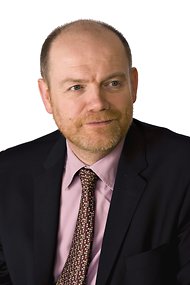The New York Times Company is paying its new chief executive, Mark Thompson, an annual salary of $1 million and an immediate signing bonus valued at $3 million.
The compensation package was detailed in securities filings released on Friday morning. In addition to the signing bonus — which will be paid in stock and stock options — Mr. Thompson is eligible for an annual bonus of $1 million.
He is also eligible to receive a separate $3 million bonus for 2013 for meeting long-term incentives, to be paid out over three years.
The bonus payments are not guaranteed unless Mr. Thompson meets certain goals set by the company.
Except for the signing bonus, Mr. Thompson’s compensation is much the same as that of his predecessor, Janet L. Robinson, in terms of annual salary and bonus eligibility. Ms. Robinson left the company in December.
Arthur Sulzberger Jr., The Times’s publisher, announced Mr. Thompson’s appointment Tuesday afternoon, concluding an extensive search. Mr. Thompson had previously been the director general of the British Broadcasting Corporation, but had stated his intention to leave the job after the London Olympics, which ended on Sunday.
Mr. Thompson was involved in expanding the BBC’s digital and global presence, areas that have become more crucial to the Times Company’s strategy in the face of significant challenges to the print newspaper. Mr. Sulzberger had made clear his intention to select someone with deep digital knowledge and experience across a variety of platforms. After Mr. Thompson arrived from London on Tuesday afternoon, he said in an interview that “it’s a privilege” to run the organization and called its newsroom “the envy of the world.”
Mr. Thompson is expected to start his job in November.
Article source: http://mediadecoder.blogs.nytimes.com/2012/08/17/times-co-discloses-pay-package-for-incoming-c-e-o/?partner=rss&emc=rss
